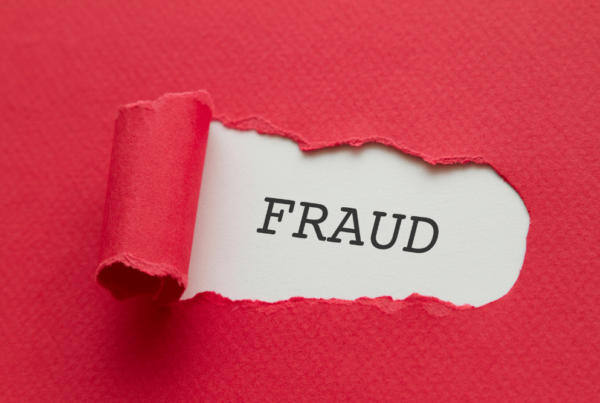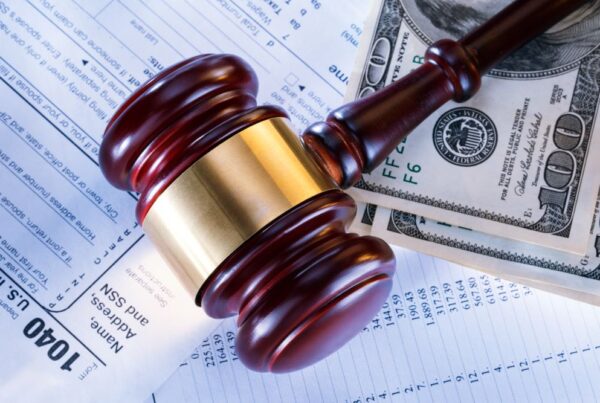WHITE COLLAR CRIMES
Accounting Fraud Defense Attorney
The Federal Government’s Response to Accounting Fraud
According to the Financial Cost of Fraud Report (2019) the cost of fraud to businesses and individuals around the globe exceeds $5 trillion each year. Fundamentally, accounting fraud involves the intentional, deceptive alteration of a company’s financial statements to manipulate the company’s apparent health, or to conceal profits or losses. This can take the form of over- or understating revenue, failing to record expenses and misstating assets and liabilities, to name just a few accounting fraud methods.
The Enron scandal of 2001 is perhaps the most famous example of accounting fraud and demonstrates the catastrophic affect that this type of fraud can have on shareholders, employees and investors alike. The Enron scandal cost shareholders over $70 billion, investors and employees saw their retirement accounts disappear and many employees lost their jobs. While Enron may be the most renowned example of accounting fraud, it was neither the last, nor the most impactful. As businesses increasingly digitize and globalize their operations, the potential for fraud increases. The federal government continues to step up their response in kind, adapting investigation tactics and prosecution strategies to keep step with alleged offenders. The Department of Justice (DOJ) collaborates with the Securities and Exchange Commission (SEC) to investigate and prosecute accounting fraud offenders, frequently filing parallel charges—both civil, and criminal charges for a given offense.
Under what statutes are alleged offenders charged?
As with many other forms, accounting fraud may be charged under a number of different statutes depending on the specific nature of a given offense. Alleged offenders are most commonly charged with securities fraud, wire fraud and conspiracy to commit the same.
Securities Fraud
Like the Enron scandal, securities fraud charges were widely publicized in the early 2000’s. Although the most recent securities fraud convictions have not captured as much of the media spotlight, the government continues its vigilance as methods of fraud evolve and adapt to the increasingly digital and global nature of business. 15U.S.C. §§ 78j(b), 78ff criminalizes a broad range of acts. To convict an alleged offender under these sections, a federal prosecutor must prove beyond a reasonable doubt that a defendant knowingly and willfully used a scheme to defraud, made a false statement of material fact, failed to disclose a material fact, or engaged in any act, practice or course of business that operates as fraud or deceit, in connection with the purchase or sale of a security. The government does not need to prove that the alleged offender knew their conduct was unlawful, only that they knew the falsification to be wrongful. The wide scope of criminal acts under this section is evidenced by the many types of securities fraud charged—insider trading, internet fraud, abusive short selling, Ponzi schemes and others.
Convictions under
Carry penalties of up to 20 years in prison, fines up to $5,000,000, or both. If the defendant is not a natural person, fines may be as much as $25,000,000.
Wire Fraud
Alleged accounting fraud offenders are also frequently charged with mail and wire fraud, which is similarly broad in scope. Under 18 U.S.C. §1343, a federal prosecutor must prove that an alleged offender knowingly devised or participated in a scheme to defraud using false pretenses, representations or promises about a material fact with the intent to defraud and communicated via wire (including email or website communication) in furtherance of the fraud. Furthermore, each instance of wire communication in furtherance of fraud may constitute a separate violation of §1343. As business operations become increasingly digital, proving the elements of wire fraud become much less of a challenge for prosecutors.
Those convicted under §1343 face up to 20 years in prison and fines up to $250,000. However, if the offense affects a financial institution, or is connected to a declared major disaster or emergency, offenders face up to thirty years in prison. If the offense involves telemarketing or email marketing, the offender faces an additional 5 years in prison (on top of the mail or wire fraud sentence). If the offender targeted persons over the age of fifty-five, they face an extra ten years in prison.
Attempt and Conspiracy
Alleged offenders can be charged with attempt and conspiracy to commit wire fraud under §1349 and under §371 for other federal crimes. The main difference between the two statutes is that prosecutions under §371 require proof that the alleged offender committed an overt act, whereas prosecutions under §1349 do not. An overt act is any act, lawful or unlawful, done to carry out the goals of the conspiracy. To be charged as a conspirator, a defendant does not need to agree to commit every part of the substantive offense, provided that there is specific intent that some member of the conspiracy commit the underlying offense. Conspirators may be convicted even if they are incapable of committing the underlying crime themselves.
Another difference lies in the possible penalties convicted offenders face. Whereas convictions under §371 carry a prison sentence up to 5 years, those convicted under §1349 are subject to the same penalties as the offense which was the object of the attempt or conspiracy.
Forfeiture
In addition to a prison sentence and fines, the court may order forfeiture as part of a convicted offender’s sentence. Forfeiture is the process allowing the government to take ownership of property and proceeds associated with criminal activity and any property traceable to such property. Forfeiture statutes have expanded over the last 50 years and forfeiture is now ordered in a broad range of cases. Forfeiture can be both a criminal, and civil consequence. 18 U.S.C. §981 defines civil forfeiture and applies to the property acquired from a violation of a number of criminal statutes, including §1343. Additional statutes allow courts to order forfeiture of any property, real or personal, derived from the commission of the charged offenses, including a sum of money personally obtained by a defendant (28 U.S.C. §2461), or any substitute property if the property derived from the charged offense cannot be found or is beyond the jurisdiction of the court (21 U.S.C. §853(p)).
White Collar Crimes
Recent Posts






